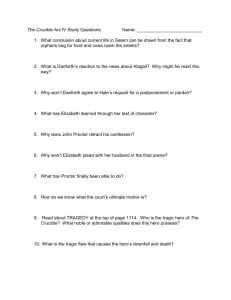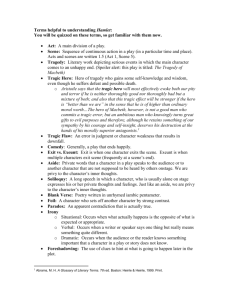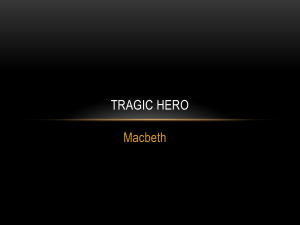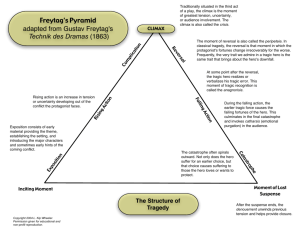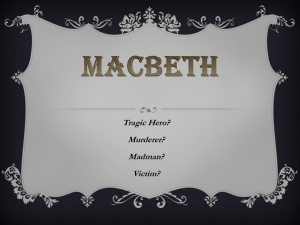The Tragedy of Macbeth
advertisement
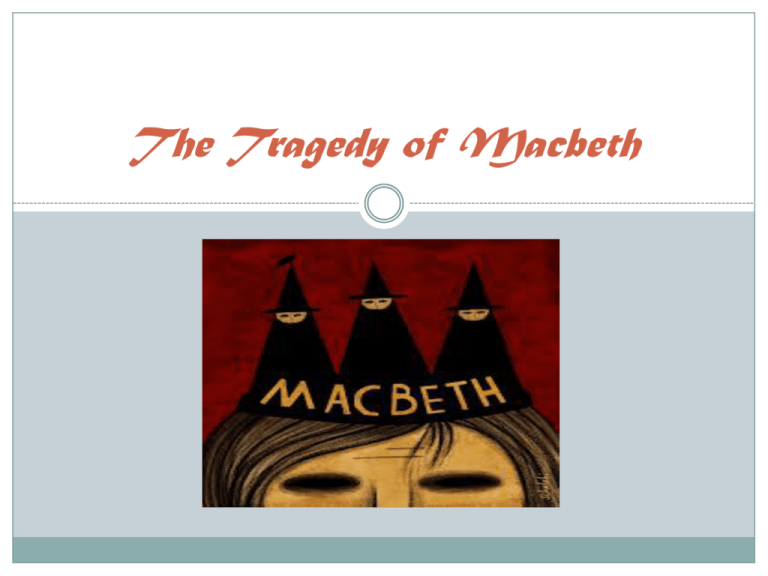
The Tragedy of Macbeth Elements of Tragedy according to Aristotle The Tragic Hero The hero must be of high estate (i.e. they must be someone important like a general or a ruler). The death of ordinary people isn’t considered tragic in the literary sense. Their demise must have an impact on society. Macbeth: The Tragic Hero The character of the tragic hero leads to their destiny The tragic sequence: character deedcatastrophe Conflict: While the action in a Shakespearean tragedy involves the conflict of opposing forces, the most imp0rtant conflict is the internal conflict of the protagonist. Often, the tragic hero is placed in a situation in which the courses of action open to him are at war with the moral order he has accepted. Tragic consequences arise from inner conflicts that test the protagonist’s integrity. The Tragic Hero Continued The tragic hero must suffer and die. Their suffering evokes feelings in the audience of pity and fear which must be purged at the end. The struggle is ethical, and spiritual. It never involves the mundane. The Tragic Hero Continued… The tragic hero must have a quality that makes them both great and causes their downfall. This is sometimes called the “fatal flaw” or Hamartia. With the greatness of the tragic hero is also the central feeling: the impression of waste. The Tragic Hero continued… The tragic hero is exceptional as is his nature. In his nature there is an intensification of ordinary qualities. In almost all, we see a marked onesidedness, a predisposition in some particular direction: a total incapacity, in certain circumstances, of resisting the force which draws in this direction; a fatal tendency to identify the whole self with one interest, object, passion, or habit of mind. Elements of Plot in Aristotelian Tragedy The Perepeteia Peripeteia is a reversal of circumstances, or turning point. The Anagnorisis The anagnorisis is where the hero changes from a state of ignorance to knowledge where the hero recognizes the nature of things fully. The Catharsis The audience must be purged of feelings of pity and fear at the end of the play. Things are set right at the end. This is called the catharsis. Additional Factors Abnormal conditions of the mind Chance or accident The supernatural Elements of humour

